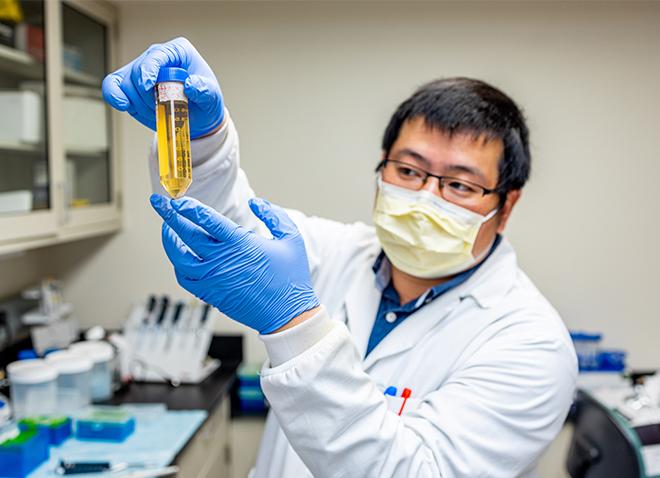Pitt scientists developing drug to prevent, treat COVID-19
Wei Li, assistant director of Pitt’s Center for Therapeutic Antibodies and co-lead author of the research, sifted through antibody components and found multiple therapeutic antibody candidates in record time.
September 15, 2020
Scientists at Pitt’s School of Medicine have successfully isolated the smallest biological molecule to date that completely and specifically neutralizes the SARS-CoV-2 virus, the cause of COVID-19, the University announced Monday.
Scientists have used the antibody to construct a drug known as Ab8, which can potentially be used to prevent SARS-CoV-2.
Ab8 has been highly effective in preventing and treating SARS-CoV-2 infection in mice and hamsters, researchers said. As well as being effective, scientists said it may not produce negative effects in humans because it does not bind to human cells.
John Mellors, who co-authored the report with Xianglei Liu of Pitt, said Ab8 could be useful to prevent COVID-19 infection in humans.
“Antibodies of larger size have worked against other infectious diseases and have been well tolerated, giving us hope that it could be an effective treatment for patients with COVID-19 and for protection of those who have never had the infection and are not immune,” Mellors, chief of the division of infectious diseases at Pitt and UPMC, said.
Ab8 has been licensed for development worldwide by Abound Bio, a newly formed UPMC-backed company.
“The COVID-19 pandemic is a global challenge facing humanity, but biomedical science and human ingenuity are likely to overcome it,” Mellors said. “We hope that the antibodies we have discovered will contribute to that triumph.”



